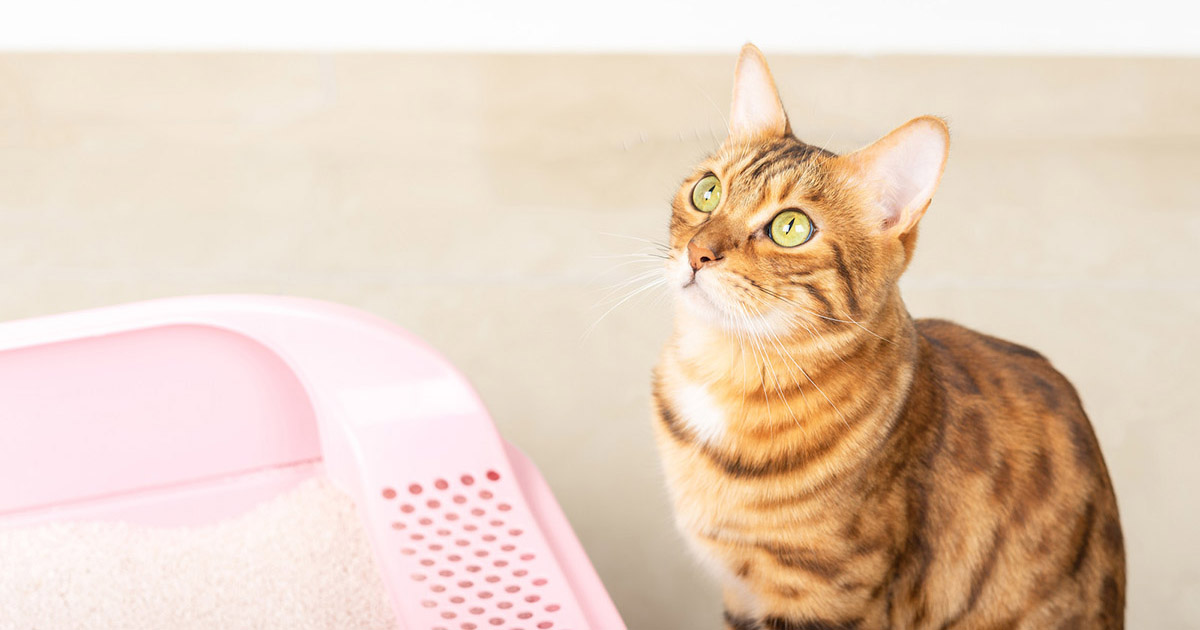Reasons You Must Never Flush Cat Poop Down Your Toilet - Important Information
Reasons You Must Never Flush Cat Poop Down Your Toilet - Important Information
Blog Article
Just how do you actually feel in regards to How to Dispose of Cat Poop and Litter Without Plastic Bags?

Intro
As cat proprietors, it's important to be mindful of exactly how we deal with our feline friends' waste. While it may appear practical to purge cat poop down the bathroom, this technique can have harmful effects for both the environment and human health and wellness.
Ecological Impact
Purging cat poop introduces dangerous virus and bloodsuckers into the supply of water, presenting a substantial threat to marine ecosystems. These contaminants can negatively influence marine life and compromise water quality.
Health and wellness Risks
Along with environmental worries, purging feline waste can also posture wellness dangers to humans. Pet cat feces might have Toxoplasma gondii, a parasite that can trigger toxoplasmosis-- a possibly serious disease, particularly for expectant ladies and people with weakened immune systems.
Alternatives to Flushing
Fortunately, there are much safer and a lot more accountable ways to throw away feline poop. Think about the adhering to options:
1. Scoop and Dispose in Trash
The most typical approach of throwing away pet cat poop is to scoop it into a naturally degradable bag and toss it in the garbage. Make certain to make use of a dedicated litter scoop and deal with the waste immediately.
2. Use Biodegradable Litter
Select naturally degradable feline trash made from materials such as corn or wheat. These litters are environmentally friendly and can be securely taken care of in the garbage.
3. Bury in the Yard
If you have a yard, take into consideration hiding feline waste in a designated location far from vegetable yards and water sources. Make certain to dig deep sufficient to prevent contamination of groundwater.
4. Set Up a Pet Waste Disposal System
Invest in an animal waste disposal system specifically developed for cat waste. These systems use enzymes to break down the waste, decreasing smell and environmental influence.
Conclusion
Accountable pet dog ownership prolongs past providing food and shelter-- it likewise entails appropriate waste monitoring. By avoiding flushing cat poop down the bathroom and selecting different disposal approaches, we can decrease our ecological impact and shield human wellness.
Why You Should Never Flush Cat Poop Down the Toilet
A rose by any other name might smell as sweet, but not all poop is created equal. Toilets, and our sewage systems, are designed for human excrement, not animal waste. It might seem like it couldn’t hurt to toss cat feces into the loo, but it’s not a good idea to flush cat poop in the toilet.
First and foremost, assuming your cat uses a litter box, any waste is going to have litter on it. And even the smallest amount of litter can wreak havoc on plumbing.
Over time, small amounts build up, filling up your septic system. Most litter sold today is clumping; it is made from a type of clay that hardens when it gets wet. Ever tried to scrape old clumps from the bottom of a litter box? You know just how cement-hard it can get!
Now imagine just a small clump of that stuck in your pipes. A simple de-clogger like Drano isn’t going to cut it. And that means it’s going to cost you big time to fix it.
Parasitic Contamination
Believe it or not, your healthy kitty may be harboring a nasty parasite. Only cats excrete Toxoplasma in their feces. Yet it rarely causes serious health issues in the cats that are infected. Most people will be fine too if infected. Only pregnant women and people with compromised immune systems are at risk. (If you’ve ever heard how women who are expecting are excused from litter cleaning duty, Toxoplasma is why.)
But other animals may have a problem if infected with the parasite. And human water treatment systems aren’t designed to handle it. As a result, the systems don’t remove the parasite before discharging wastewater into local waterways. Fish, shellfish, and other marine life — otters in particular — are susceptible to toxoplasma. If exposed, most will end up with brain damage and many will die.
Depending on the species of fish, they may end up on someone’s fish hook and, ultimately on someone’s dinner plate. If that someone has a chronic illness, they’re at risk.
Skip the Toilet Training
We know there are folks out there who like to toilet train their cats. And we give them props, it takes a lot of work. But thanks to the toxoplasma, it’s not a good idea.

As a keen reader about How to Dispose of Cat Poop and Litter Without Plastic Bags, I think sharing that excerpt was a smart idea. Do you know somebody who is curious about the topic? Do not hesitate to promote it. Thanks a lot for your time. Come back soon.
Browse Website Report this page